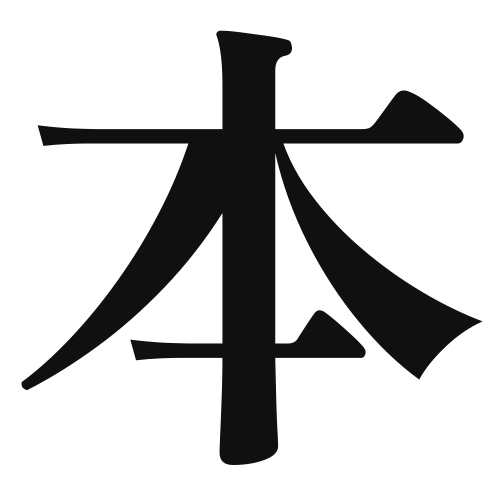1. Overview of Meaning
The kanji “本” (hon) primarily means “book” or “origin.” It is often used to refer to physical books, as well as the concept of something being the main or original source of something.
2. Formation and Radicals
The kanji “本” is classified as a phonetic-ideographic character (形声文字). It combines the meaning of “tree” (木) with a horizontal line at the bottom, symbolizing the trunk of a tree, which represents the idea of something being rooted or foundational.
The radical of “本” is 木 (tree), which is often associated with nature and growth.
3. Examples of Usage
Common words and phrases that include “本” are:
- 本屋 (ほんや, honya) – bookstore
- 本当 (ほんとう, hontou) – truth
- 本質 (ほんしつ, honshitsu) – essence
Example sentences in daily conversation:
- この本は面白いです。(このほんはおもしろいです。) – This book is interesting.
- 本当のことを教えてください。(ほんとうのことをおしえてください。) – Please tell me the truth.
4. Synonyms and Antonyms
Similar kanji with related meanings include:
- 書 (しょ, sho) – writing or document, which emphasizes the act of writing rather than the physical book itself.
Antonyms include:
- 無 (む, mu) – meaning “none” or “without,” which contrasts with the idea of having a book or source.
5. Cultural and Historical Background
The kanji “本” is deeply connected to Japanese culture, as books have historically been a vital source of knowledge and storytelling. The concept of “本” also appears in various proverbs and idiomatic expressions, such as:
- 本末転倒 (ほんまつてんとう, honmatsu tentou) – meaning “putting the cart before the horse,” which refers to confusing the main issue with trivial matters.
This reflects the importance of understanding the essence or origin of things in Japanese culture.
